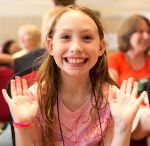Indigenous Affairs Committee
The Indigenous Affairs Committee works to stimulate interest in issues related to American Indians. It works with local Meetings, other Yearly Meetings, and other Friends' organizations to benefit native peoples.
IAC NEWSLETTERS ARE NOW AVAILABLE ON THIS PAGE, SCROLL DOWN TO READ THE LATEST ISSUES!
Click to see the complete description of the Committee as it appears in the current Manual of Procedure. Listed below are the current members of the Committee.
E-mail: indigenousaffairs@bym-rsf.org | |
Steven "Steve" Tatum, Co-Clerk Blacksburg Monthly Meeting | Susan "Susannah" Rose, Co-Clerk Patapsco Friends Meeting |
Sharon Stout Adelphi Friends Meeting | John Meyer Friends Meeting of Washington |
Abbey Compton Herndon Friends Meeting | Betty Smallwood Langley Hill Friends Meeting |
Eric Nelson Alexandria Friends Meeting | William "Bill" Mims Langley Hill Friends Meeting |
Darcy Lane Sandy Spring Friends Meeting | Stuart Greene Patapsco Friends Meeting |
Land Acknowledgement
The Baltimore Yearly Meeting office is located on Piscataway ancestral land. BYM’s summer camps are located on the lands of the Piscataway (Catoctin camp, near Thurmont, MD), the Massawomek (Opequon camp, near Winchester, VA), and the Manahoac (Shiloh camp, near Standardsville, VA). BYM honors the peoples and cultures of the many past and present Native Nations in our geographic area.
REPARATIONS TO THE PAWNEE NATION
IAC NEWSLETTERS
The Indigenous Affairs Committee has a quarterly newsletter called the Indigenous Affairs Quarterly (IAQ). Read the current issues below
-
An Update from the Baltimore Yearly Meeting IA Committee, Winter, 2024-2025.
IAC Statement of apology and action
-
Click on the above link for more information
-
Click on the above link to read more
IAC CONTACTS
Co-Clerk Susannah Rose at susanhillsrose@gmail.com
Committee at indigenousaffairs@bym-rsf.org
BYM Office Phone 301-774-7663

